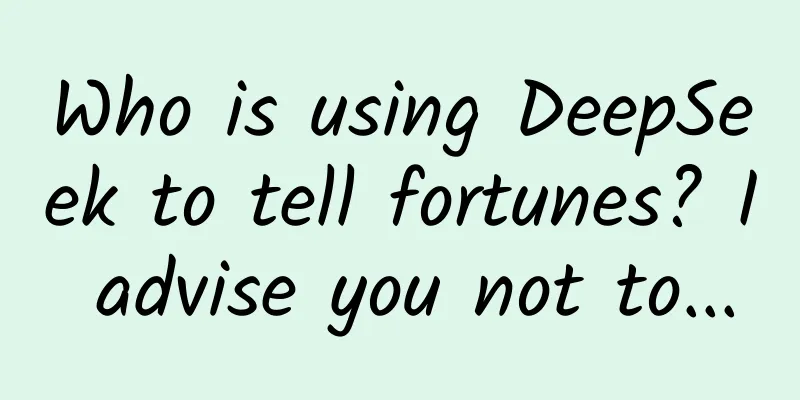Can Momo, who has a godfather, really make a comeback?

|
Momo is finally going public. This time, Momo not only packages itself as the third largest mobile social platform after Tencent's QQ and WeChat (after all, Sina Weibo also has a PC version), but also rings the bell with the help of its godfather Alibaba, which is confident of its future profitability. Everything seems to be perfect, but it is good to paint a pie and tell a story. Can Momo really package its concept like this? Tie Ge certainly believes that Momo has made great achievements in social networking, especially in stranger social networking, but he also believes that if Momo can really make a comeback, it still has the following three hurdles to overcome. First, strangers become acquaintances Momo started out as a stranger social network. Although the roadshow PPT did not emphasize the concept of "social networking", But there is no doubt that Momo's foundation is still based on stranger social networking. Stranger social networking did bring Momo a lot of reputation in the beginning, but it also made Momo bear the burden of being a "hookup tool". Although Momo has always resisted the title of "hookup tool", in private, users still use this title to describe it. The most interesting thing is that Momo put up a huge poster advertisement in Beijing Guomao subway station. Tiege passed by more than once and heard someone next to him introduce Momo as "the hookup platform". Of course, Momo has used various means to remove this stigma, but we must also see that this is also a natural product of stranger social interaction. When people communicate with strangers, especially through mobile platforms, the evil in their hearts will be magnified. The environment and familiar people will have a certain restraint on people. They can be unscrupulous in front of acquaintances, but they still have to maintain their original bottom line and image. When communicating with strangers in an unfamiliar environment, they often put aside their past image and really do things that were not easy or convenient to do in the past when they were familiar with each other. Social networking among strangers and social networking among acquaintances are indeed two different ecosystems. Social networking among acquaintances is more about social interaction itself, including communication, sharing, and showing off, while social networking among strangers is more about asking for things. What can I get in a strange state? Is it "hooking up", "picking up girls", or "selling"? When asking for things becomes the first reason for using a platform, the platform itself is extremely dangerous. Once this reason is replaced by someone else in the future, users will leave immediately. Social networking among strangers has limited binding on users' social relationships. Most users will choose to turn strangers on Momo into acquaintances, and then transfer the relationship to WeChat. If they are already acquaintances, why are they still on Momo? Although Momo is now increasing its efforts in social networking among acquaintances, once it fully enters the social networking among acquaintances, it will be competing with WeChat for market share. What are the chances of winning? Realizing a closed loop of social interaction among strangers is Momo’s top priority, but there is still a long way to go. Second, use LBS to compete with platforms in various segments This time, Momo's PPT is about how to make money based on position and status, including finding various groups and organizations. Basically, it is based on LBS, allowing users to find stores, activities and groups around them. The ambition is big enough, and the pie is big enough, but can Momo alone handle such a grand blueprint? It is not difficult for us to find that Momo's move is basically to put a package of products such as maps, group buying, QQ groups, etc. in its own pocket, and it is not difficult for us to find that other sub-sectors are not weak, and some products are even much stronger than Momo. Other vertically segmented products are directly based on rigid demand, such as navigation group buying and acquaintance social networking, which have very strong user stickiness. But how competitive is Momo, which uses stranger social networking, a non-rigid demand, to seize other people's market? Momo uses geolocation to find strangers and then finds services around the location. This is undoubtedly an extra step for mobile Internet users who like quick, flat and fast services. If they need services, they can find the best segmented products. Some users who are not interested in stranger social interaction will definitely not use Momo to find services around them. Third, user activation As we can easily see from the above, Momo’s users are utilitarian and have low stickiness. With the stigma of being a “hookup tool”, couples will not easily tolerate their significant other having “Momo” on their phone, except for promotions. Once single men and women find their significant other, their motivation to use Momo drops significantly. In addition, Tiege found a problem when trying Momo. When searching for strangers around him through geographic location, almost no one responded within an hour after leaving a message. Most of them responded after two or three hours. What's even more strange is that the system still shows that they were online five minutes ago. Momo users may really have reached 60 million MAU and 25.5 million DAU as described in the PPT, but it is still a big question whether the behavior of these users has been fully activated. I believe there are still many users here who just look around to see if there are any sexy targets every day and hook up with them, that's all. The biggest highlight of Momo's IPO is of course the fact that it has Alibaba as its "godfather". Alibaba's 20% stake is also favored by the market in the name of social e-commerce. But for Momo itself, having a godfather is good, but the most important thing is to cultivate internal strength, because some things cannot be relied on by others. As a winner of Toutiao's Qingyun Plan and Baijiahao's Bai+ Plan, the 2019 Baidu Digital Author of the Year, the Baijiahao's Most Popular Author in the Technology Field, the 2019 Sogou Technology and Culture Author, and the 2021 Baijiahao Quarterly Influential Creator, he has won many awards, including the 2013 Sohu Best Industry Media Person, the 2015 China New Media Entrepreneurship Competition Beijing Third Place, the 2015 Guangmang Experience Award, the 2015 China New Media Entrepreneurship Competition Finals Third Place, and the 2018 Baidu Dynamic Annual Powerful Celebrity. |
<<: Why hasn’t there been a second “WeChat” in Europe and the United States?
>>: What's the next step for smart home? Convincing consumers is the key
Recommend
Three strategies for long-term success of popular brands
After creating a category, you must dominate the ...
2021 Double 11-KOL Marketing Preparation Strategy Insights and Resources
The release of Double 11 commercial content is co...
Hericium erinaceus, does it look like a monkey head?
The Food and Agriculture Organization of the Unit...
After applying it, the skin becomes transparent, and the blood vessels and muscles are clearly visible...
Produced by: Science Popularization China Author:...
I've been having itchy rashes lately, and it's annoying to scratch them! Huaxi doctors suggest you check this out...
Some people go out to enjoy the breeze or take a ...
Breakthrough Academy "Virtual E-commerce Basics Series" training course video
Course Contents: 1. Cognition: A comprehensive gu...
Electric Technology Car News: Can the Xuanlang, which is very good-looking but not comfortable, and beats the Baojun 730, open up a new pattern for MPVs?
At the Guangzhou Auto Show at the end of last yea...
How to invest in Tik Tok information flow? Tik Tok information flow advertising click-through rate!
As the most direct profit channel for short video...
The "ginseng" in the desert, the "white ginseng" that was praised in the Han Dynasty, can actually cope with sandstorms?
Cistanche deserticola, also known as Cistanche de...
Why is Weibo becoming a standard “must-buy” marketing channel for advertisers?
On August 9, Beijing time, Weibo’s stock price re...
"Investment and Business" advanced course!
"Investment and Business" 2020 Advanced...
Are there any side effects of always taking painkillers for migraine?
《Cotton Swab Medical Science Popularization》 Wang...
iOS 7 exposed the latest vulnerability, unlocking in as fast as 5 seconds
Some users have discovered the latest lock screen ...
What exactly is the user growth concept that has reaped the benefits of countless exploits?
The most important part of user operation is user...
How to choose the first release channel? 8 hidden rules of APP operation
First, let Zhuge help you understand the position...









